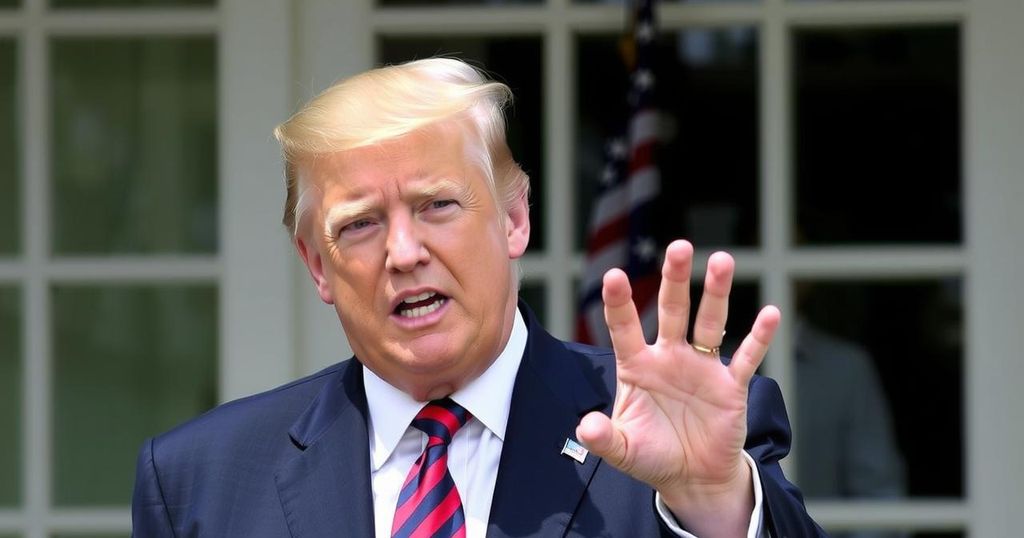President-elect Donald Trump faces significant international challenges as he prepares for office, especially in light of the recent collapse of Bashar al-Assad’s regime in Syria. His preference for reducing U.S. foreign involvement will be tested as the situation evolves, necessitating a careful assessment of national security interests within an increasingly complex global landscape.
As President-elect Donald Trump prepares to take office, he is confronted with significant international challenges, particularly following the unexpected fall of Bashar al-Assad’s regime in Syria. Despite his inclination towards an ‘America First’ policy aimed at reducing U.S. engagement in foreign conflicts, the realities of a complex geopolitical landscape may necessitate his involvement in global affairs. Trump’s notable declarations on social media underscore this tension; while he advocates for non-intervention, the threat to U.S. national security raises the question of whether he can truly refrain from addressing these global crises.
The shifting dynamics in the Middle East, particularly those linked to Iran and Russia, introduce further complications. Trump’s allies hint that U.S. involvement would only be warranted should national security interests be at stake, suggesting that continued terrorist threats may compel an active role. Moreover, his vision for a distinct and assertive foreign policy may clash with the requirements of global stability when faced with such volatility.
In conversations about the U.S. military presence in Syria, there exists apprehension regarding the resurgence of ISIS and the precarious state of affairs following Assad’s removal. This is compounded by an emerging strategic partnership between adversarial nations—Russia, Iran, and North Korea—presenting a unified challenge that Trump must navigate. His approach appears increasingly focused on assessing how events may unfold rather than committing to immediate intervention, aligning with sentiments from various analysts regarding a measured response.
Simultaneously, Trump’s interactions signal an understanding of the interconnectedness of global conflicts, as seen when he referenced the geopolitical implications of Assad’s ouster concerning Ukraine and Russia. He seems to recognize that while he advocates for a reduction in U.S. foreign military entanglements, the growing expert consensus is that such engagements may not be avoidable in the face of escalated international crises.
Lastly, as Trump transitions into his presidency, the international community remains attuned to the implications of his foreign policy stance, particularly the balance he seeks to achieve between isolationism and international engagement. With the stakes higher than ever, the future of global stability rests, in part, on the decisions he will undertake in this complex web of international relations.
The article discusses the impending challenges President-elect Donald Trump faces concerning foreign policy as he prepares to take office. The recent fall of Bashar al-Assad’s regime in Syria presents a significant international dilemma, demanding urgent attention despite Trump’s preference for a less interventionist stance. The article explores the intricate relationship between global actors, including Russia, Iran, and the United States, and highlights the complexities of navigating these dynamics amid rising geopolitical tensions and national security concerns.
In conclusion, the article articulates the multifaceted challenges Donald Trump must navigate as he assumes the presidency, emphasizing the unpredictability of international relations. While his inclination towards prioritizing American interests suggests a retreat from foreign entanglements, the realities of global power dynamics may compel his administration to take decisive action in response to crises. The evolving geopolitical landscape underscores the necessity of a strategic approach that balances national security with diplomatic engagement.
Original Source: www.cnn.com






